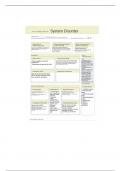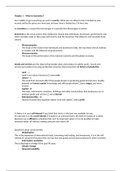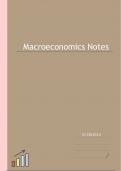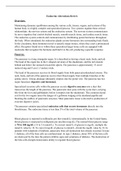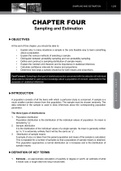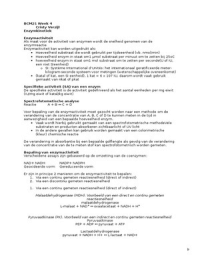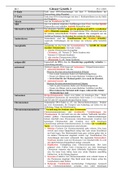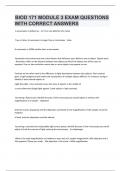William Shakespeare
Introduction
William Shakespeare’s Macbeth is a tragedy that explores themes of ambition, power, guilt,
and fate. Written in the early 17th century, it remains a cornerstone of English literature and
drama, frequently studied in schools for its rich language, complex characters, and profound
moral questions. This guide is specifically designed for English First Additional Language
learners preparing for exams. It covers plot summaries, characters, themes, symbols, and
strategies for answering different types of questions.
Plot Overview
Act I: The Rise of Ambition
The play begins with the three witches, who set a tone of mystery and foreboding. They
predict Macbeth’s rise to power, planting the seeds of ambition.
Macbeth, a noble and loyal soldier, is hailed as a hero for his role in defeating the king’s
enemies. However, the witches’ prophecy that he will become king disturbs and excites
him.
Lady Macbeth learns of the prophecy and becomes determined to see Macbeth ascend
to the throne, even if it means murder.
Act II: The Murder of King Duncan
Macbeth hesitates but is spurred on by Lady Macbeth. They kill King Duncan while he
sleeps and frame the guards.
Macbeth begins to feel guilt and paranoia, hearing imaginary voices. Lady Macbeth takes
charge to conceal their crime.
Act III: Macbeth’s Paranoia
Now king, Macbeth fears Banquo’s descendants, as the witches predicted Banquo’s heirs
would inherit the throne.
He arranges the murder of Banquo and his son, Fleance. Banquo is killed, but Fleance
escapes.
At a royal banquet, Macbeth sees Banquo’s ghost, further unraveling his sanity.
Act IV: The Downfall Begins
, Macbeth consults the witches again, who provide cryptic warnings: to beware Macduff,
that no man born of a woman can harm him, and that he will remain safe until Birnam
Wood comes to Dunsinane.
He orders the slaughter of Macduff’s family.
Act V: The Fall of Macbeth
Lady Macbeth descends into madness, tormented by guilt. She eventually dies, possibly
by suicide.
Malcolm, Duncan’s son, leads an army to overthrow Macbeth. Soldiers disguise
themselves with branches from Birnam Wood, fulfilling the witches’ prophecy.
Macduff confronts and kills Macbeth, revealing that he was born by caesarean section
(not “born of a woman”). Malcolm becomes king, restoring order.
Character Analysis
Macbeth
Initially a loyal and valiant warrior.
Ambitious and easily influenced by external forces (witches and Lady Macbeth).
His ambition leads to moral corruption, paranoia, and tyranny.
Tragic hero: his downfall is a result of his own flaws.
Lady Macbeth
Ambitious, manipulative, and ruthless in the beginning.
Pushes Macbeth to murder Duncan.
Her guilt consumes her, leading to madness and death.
The Witches
Supernatural beings who influence events but do not control them.
Represent fate and prophecy.
Speak in riddles and paradoxes, leaving their true intentions unclear.
Banquo
A noble and loyal friend to Macbeth.
Represents integrity and moral contrast to Macbeth.
His ghost symbolizes Macbeth’s guilt and fear.
Macduff
Represents justice and revenge.
Loyal to Scotland and driven by the desire to restore order.
Ultimately defeats Macbeth.
Malcolm
Duncan’s son and rightful heir.

